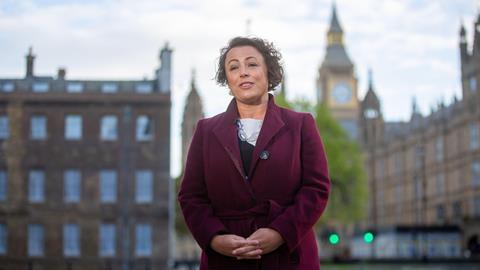After mixed messaging on its plans for the SEND Tribunal, the government is refusing to guarantee what needs provision will remain in place. And why no mention of local authorities?
When the Gazette reported on 11 June that the government was contemplating a future without the SEND Tribunal, we were an outlier. The Department for Education demanded a correction. Earlier in the week, its spokesperson had briefed me that there was no ‘SEND white paper’. The department had not sent a promised statement in time for an agreed deadline.
On the same day as our report, chancellor Rachel Reeves stood up to deliver her 2025 spending review. Not only did she announce a white paper, DfE’s statement for the Gazette, which arrived that evening, made clear it was ‘actively working with parents and experts’ on the document.
DfE engaged with none of the Gazette’s questions on whether SEND reforms would stop cases going to the tribunal by changing the scope of what is justiciable through the legal status of education, health and care plans (EHCPs). These plans specify in relevant sections support that must be provided – and local authorities have a legal duty to deliver that support.
There have been further developments. First, a rebellion by Labour MPs over Treasury-driven welfare reforms. This showed that U-turns are possible. Hence, website Politics Home reported on 8 July, ‘Education secretary holding SEND meetings with Labour MPs to avoid repeat of welfare rebellion’.
The second development, following the Gazette’s early reporting and predating the 8 July report, has been a deterioration in DfE’s commitments on SEND, even compared with its 11 June position set out for this magazine.
Schools minister Catherine McKinnell MP kicked this new phase off on 1 July at the Commons education select committee. She refused to promise that the framework of legal rights and entitlements that provide families with a vital roadmap of what should be happening will be retained. Her new word was ‘effective’ – ‘effective provision’ would not be removed.
‘We’re not looking to change existing provision that is working [emphasis added] for children. But obviously that’s not a 100% guarantee of continuity.’
Pick a news outlet in the past week and you will likely find DfE’s attempts to roll the pitch being called out – on the front page of the Guardian, Times and Telegraph, the Today Programme, LBC, ITV News and BBC Newsnight.
The ministerial advocacy crutch is that ‘the system is broken’ – typified as ‘lose, lose, lose’ for all parties and that families ‘shouldn’t have to fight’.
Completely absent from all government narrative on SEND is any mention of local authorities. Which is odd, given the sustained and apparently successful efforts of the Local Government Association to turn ministerial heads to the idea that EHCPs and children and young people’s rights have created councils’ financial crises.
'Time after time, local authorities make decisions on their own policy and not the law.… rather than looking at local authorities’ decision-making, ministers are completely quiet on this and just choose to blame disabled children for having needs'
Hayley Mason-Seager, SEN Legal
The Gazette canvassed leading solicitors who advise families for their views.
Polly Sweeney, partner at Rook Irwin Sweeney, said: ‘The narrative that is being presented of parents with sharp elbows trying to get more for their child than they need could not be further from the truth.’ Most clients, says Sweeney, ‘come to me in a state of desperation, having already been repeatedly failed by the system’. Frequently, their children will have been out of school for significant periods because the support they need to attend mainstream school, such as therapy or 1:1 support, has not been provided.
She is adamant that legal enforceability is necessary: ‘The budgetary pressures facing both mainstream schools and local authorities are well known. It is fanciful to suggest that disabled children’s needs will be met, particularly in mainstream schools, without an EHCP.’
Not only do mainstream schools simply not have the resources, but in many cases ‘they will also not have the expertise’.
Hayley Mason-Seager, senior solicitor and CEO at firm SEN Legal, said: ‘The problem has always been with accountability and enforceability in the SEND system.’
In 2023/24, the SEND Tribunal upheld the local authority’s original decision in just 150 of the 11,157 appeals that went to a full hearing: ‘That is a council success rate of 1.3%.’
She continued: ‘Time after time, local authorities make decisions on their own policy and not the law.’ Yet, ‘rather than looking at local authorities’ decision-making, ministers are completely quiet on this and just choose to blame disabled children for having needs’.
Sweeney concluded: ‘Getting rid of EHCPs or removing rights of appeal to tribunal will not make children’s needs disappear. It will just mean that those needs will not be met and there will be nothing parents can do about it.’
All of which explains why the DfE has a fight on its hands.





































No comments yet